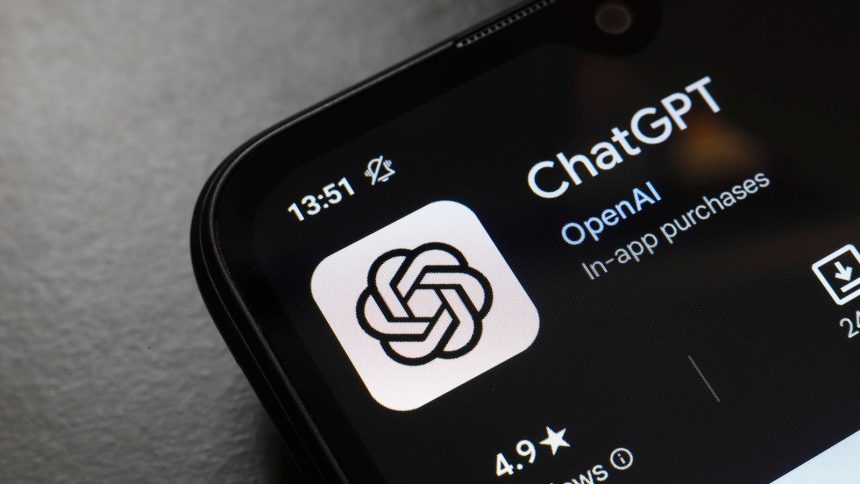ChatGPT Embraces Assistant-Like Features, While AI’s Limitations Exposed in California Wildfires
OpenAI has announced a significant upgrade to its popular chatbot, ChatGPT, granting it the ability to schedule reminders and provide timely alerts. This move signifies a strategic push towards transforming ChatGPT from a conversational AI into a more versatile personal assistant, mirroring capabilities already present in competitors like Google Assistant and Alexa. While ChatGPT boasts over 300 million users, it still lags behind established assistants in functionalities such as music playback and call initiation. This enhancement unfolds against a backdrop of growing concerns about the practical application of AI, particularly in disaster management. Recent wildfires in Los Angeles, California, highlight the limitations of existing AI-driven fire detection systems. Despite California’s investment in a sophisticated AI system designed to analyze video feeds and provide early fire warnings, the rapid spread of the current disaster overwhelmed the technology, resulting in an estimated $150 billion in damages. This incident underscores the ongoing challenges in developing AI solutions capable of effectively responding to real-time crises.
Anthropic’s Billion-Dollar Valuation and OpenAI’s Vision for American AI Leadership
The AI landscape continues to witness a surge in investments, with Anthropic, a prominent AI firm, poised to secure $2 billion in venture capital, raising its valuation to an impressive $60 billion. This substantial funding round is projected to propel each of Anthropic’s seven founders, including CEO Dario Amodei, into billionaire status, with an estimated net worth of at least $1.2 billion per founder, based on their projected 2% stake in the company. Meanwhile, OpenAI has unveiled an "Economic Blueprint" outlining its strategy for maintaining America’s dominance in the AI arena. This blueprint proposes attracting over $100 billion in global investment, diverting funds that might otherwise flow to Chinese tech companies. OpenAI also advocates for a lighter regulatory approach grounded in "democratic values," signaling a preference for less stringent oversight in the development and deployment of AI technologies.
AI in Life Sciences and Eric Schmidt’s Stealth AI Video Venture
The applications of AI continue to expand across various sectors, with Collate, an AI-driven startup focused on streamlining paperwork for life sciences companies, securing $30 million in funding. Collate aims to leverage generative AI tools to liberate researchers from administrative burdens, allowing them to concentrate on critical drug development processes while ensuring regulatory compliance. In a less public sphere, former Google CEO Eric Schmidt has embarked on a new AI venture centered on video generation. The stealth startup, Hooglee, aims to "democratize video creation with AI" and is currently funded and housed by Schmidt’s family office, Hillspire. This marks Schmidt’s first personally incubated AI project following his investments in several AI companies, including Anthropic and SandboxAQ. The venture reflects Schmidt’s complex perspective on AI, oscillating between optimism about its potential to enhance productivity and concerns about its potential dangers, even suggesting the need to "unplug it" under certain circumstances.
The Dark Side of AI Finance Apps and OpenAI’s Multilingual Model Quirks
While AI promises innovative solutions, its application in personal finance raises ethical questions. An investigation reveals that AI-powered finance apps, such as Cleo AI and Bright, often utilize user data to upsell financial products, including short-term loans and cash advances, potentially leading users into debt cycles. This practice underscores the need for greater transparency and responsible data handling within the AI-driven financial services sector. On the technical front, OpenAI’s o1 model, known for its chain-of-thought reasoning, has exhibited an intriguing quirk: performing some steps in Chinese. This unexpected behavior is attributed to the inclusion of Chinese training data sourced from open-source datasets and third-party labelers, highlighting the complexities of managing diverse data sources in AI model development and the potential for unforeseen linguistic biases.
OpenAI’s Economic Blueprint: A Deeper Dive
OpenAI’s "Economic Blueprint" represents a comprehensive strategy for strengthening America’s AI leadership. It emphasizes not just attracting investment, but also fostering a regulatory environment that encourages innovation while upholding democratic principles. This dual approach aims to balance the drive for technological advancement with the need for responsible AI development. The proposal acknowledges the global competition in the AI sector, particularly with China, and seeks to position the U.S. as the preferred destination for AI investment and talent.
Eric Schmidt’s Hooglee: Exploring the Frontiers of AI Video Generation
Hooglee’s mission to "democratize video creation with AI" suggests a focus on making sophisticated video production tools accessible to a wider audience. While the specifics of Hooglee’s technology remain undisclosed, it likely leverages recent advancements in AI-powered video generation, potentially enabling users to create high-quality videos with minimal technical expertise. This aligns with the broader trend of AI empowering individuals with creative tools previously limited to professionals. Schmidt’s involvement in Hooglee adds significant weight to the venture, given his experience in leading Google and his extensive investments in the AI sector. However, the secretive nature of the project raises questions about its specific goals and its potential impact on the rapidly evolving landscape of AI video generation.



